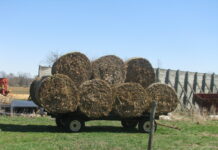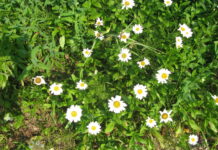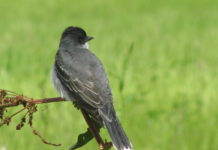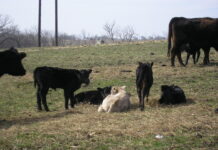Photo credit: DiasporaEngager (www.DiasporaEngager.com).
- Africa Fertiliser Financing Mechanism will avail 8000 tons of fertiliser.
- 5.533 million Kenyan farmers are registered for the government’s subsidised fertiliser programme.
- African Development Bank granted Kenya $67 million in 2022-2023 through its African Emergency Food Production Facility.
The Africa Fertiliser Financing Mechanism has launched a project to help deliver 8,000 tons of fertilisers to 100,000 smallholder farmers in Kenya to boost harvests and incomes.
Through its Fertiliser Financing for Sustainable Agriculture Management Project, the Mechanism will provide a $2 million partial trade credit guarantee and a grant of $219,000 to Apollo Agriculture Limited, a Kenyan corporation, to facilitate the company’s fertiliser sales.
The Norwegian Agency for Development Cooperation, through a contribution of $10.15 million to the Africa Fertiliser Financing Mechanism, is also supporting the project.
Representatives of the African Development Bank, which manages the Mechanism, Apollo Agriculture and the Kenyan and Norwegian governments attended the launch event in Nairobi.
Kenyan smallholder farmers often lack the collateral to secure financing to buy the necessary fertilisers. By sharing credit risk with suppliers like Apollo Agriculture, the Mechanism bolsters their confidence in offering fertiliser on credit.
Read Also: Dangote to launch biggest plant in global fertiliser industry
Africa fertiliser financing mechanism
Marie Claire Kalihangabo, Coordinator of the Africa Fertiliser Financing Mechanism, said, “The credit risk guarantee also provides finance directly to smallholder farmers at the last mile of delivery. It offers fertiliser, certified seed crop protection, and insurance against crop failure.”
The two-year-long project will use Apollo’s digital platform to connect farmers seeking fertiliser and other inputs on credit with a network of 150 retail agro-dealers and 800 village-based agents. Kenya’s fertiliser market involves importers, blenders, and a government subsidy program.
“This support is in line with the Bank’s Feed Africa Strategy. It will ensure long-term private sector engagement in financing fertiliser, ultimately increasing food production and security in Kenya,” said Nnenna Nwabufo, Director General of the African Development Bank’s East Africa regional office.
Benjamin Njenga, co-founder of Apollo Agriculture, explained that Kenyan farmers can obtain high-quality farming supplies by paying a small deposit upfront, with the full loan being due when the farmer has harvested and sold the produce.
“We believe increased and proper fertiliser use can significantly impact food supply and household income,” Gunnar Holm, Norwegian Ambassador to Kenya, said at the launch.
Peter Owoko, Director of Policy at the Ministry of Agriculture and Livestock Development, announced new initiatives to strengthen Kenyan food security.
“During the 2024 cropping seasons, the government targets to avail up to 12.5 million tons of fertilisers to farmers under the subsidy program.”
He thanked the African Development Bank for granting Kenya $67 million in 2022-2023 through its African Emergency Food Production Facility.
Apollo Agriculture has already begun implementing the Fertiliser Financing for Sustainable Agriculture Management Project in Kenya’s Bungoma and Uasin Gishu counties, targeting maize production. High expectations are that yields will increase for the harvest season starting in September 2024.
The project aligns with Kenya’s Vision 2030, which identifies agriculture as a key driver of the country’s economic growth and food security.
Read Also: Largest fertiliser-producing countries in Africa and their output
The deals come at a time when a shortage of fertiliser has hit most parts of Kenya’s North Rift region as grain farmers rush to make purchases for the upcoming planting season.
Last month, the National Cereals and Produce Board (NCPB) admitted that the demand for the input is outstripping supply.
“We have so far distributed 378,000 bags of fertiliser for the long season planting exercise but there is high demand for the farm input, especially in the maize growing zones of the North Rift region,” said Titus Maiyo, NCPB’s corporate affairs manager.
According to the latest data from the Ministry of Agriculture, 5.533 million Kenyan farmers are registered for the government’s subsidised fertiliser programme. Some 313,959 fertiliser bags have been redeemed for the upcoming planting season.
“Some 418,267 bags of fertiliser valued at Sh790 million are at NCPB and Kenya National Trading Corporation warehouses,” states the report.
The report states that About 314,000 bags have been redeemed in 23 counties. Some 69,333 unique farmers have redeemed the fertiliser.
“It is only 4,000 out of the 10,000 registered farmers in the North Rift region who have received the government subsidised fertiliser,” said Mr Kipkorir Menjo, Kenya Farmers Association director.
The fertiliser is going at Sh2,500 per bag, while retailers in most parts of the North Rift region are selling planting fertiliser at more than Sh6,200 per bag.
Source of original article: Investing – The Exchange (theexchange.africa).
The content of this article does not necessarily reflect the views or opinion of Global Diaspora News (www.GlobalDiasporaNews.com).
To submit your press release: (https://www.GlobalDiasporaNews.com/pr).
To advertise on Global Diaspora News: (www.GlobalDiasporaNews.com/ads).
Sign up to Global Diaspora News newsletter (https://www.GlobalDiasporaNews.com/newsletter/) to start receiving updates and opportunities directly in your email inbox for free.































